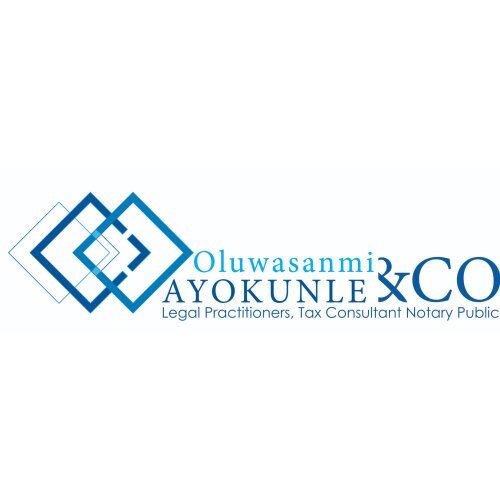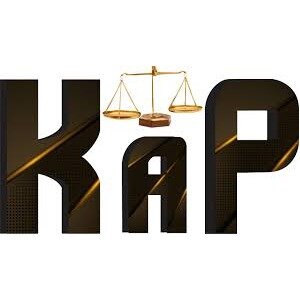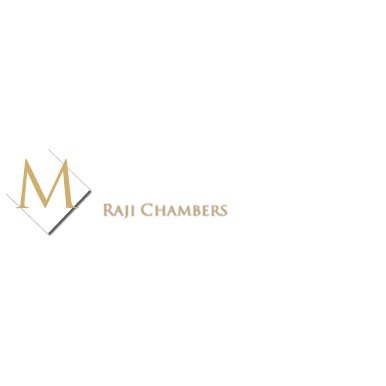Best FDA Law Lawyers in Nigeria
Share your needs with us, get contacted by law firms.
Free. Takes 2 min.
Or refine your search by selecting a city:
List of the best lawyers in Nigeria
Legal guides written by Adeola Oyinlade & Co:
- Procedure and Requirements for Work Permit and Visas in Nigeria
- The Step-By-Step Procedure of How to Apply for Microfinance Bank License Online in Nigeria
- How to Ensure the Smooth Recognition and Enforcement of Foreign Judgments in Nigeria
About FDA Law in Nigeria
FDA Law in Nigeria refers to the body of legislation and regulations that govern the safety, quality, manufacturing, marketing, and distribution of food, drugs, cosmetics, and medical devices in Nigeria. The primary regulatory authority in the country is the National Agency for Food and Drug Administration and Control (NAFDAC). NAFDAC enforces standards to protect public health and ensure that products circulating in the Nigerian market are safe, effective, and properly labeled. Other agencies like the Standards Organisation of Nigeria (SON) and the Nigerian Institute for Pharmaceutical Research and Development (NIPRD) may also play roles in specific aspects of FDA Law compliance.
Why You May Need a Lawyer
People and businesses may require legal assistance in FDA Law for various reasons. Common situations include:
- Obtaining NAFDAC registration for new products such as food items, drugs, or cosmetics
- Navigating import or export regulations for regulated products
- Responding to enforcement actions, product recalls, or sanctions from NAFDAC or other authorities
- Ensuring product labeling and advertising comply with local laws
- Establishing manufacturing or distribution operations requiring FDA approvals
- Litigation regarding non-compliance, intellectual property, or consumer protection related to regulated products
- Advising on the legal aspects of clinical trials, medical devices, or pharmaceutical innovations
A lawyer who specializes in FDA Law can clarify requirements, help prepare documentation, represent clients before regulatory agencies, and provide strategic advice to minimize legal risks.
Local Laws Overview
Key aspects of local laws in Nigeria relevant to FDA Law include:
- NAFDAC Act: Outlines the powers and functions of NAFDAC, including requirements for product registration, inspection, and enforcement against non-compliance.
- Food and Drugs Act: Governs the manufacture, importation, exportation, advertisement, sale, and distribution of food and drugs.
- Counterfeit and Fake Drugs and Unwholesome Processed Foods Act: Prohibits the sale and distribution of counterfeit or fake products and prescribes penalties for violations.
- Labelling and Packaging Regulations: Mandate accurate and detailed labeling, including ingredient disclosure, manufacture and expiry dates, and instructions for use.
- Clinical Trials and Medical Devices: Special regulations requiring prior approval and compliance with local standards.
- Advertising Regulations: Controls on marketing, health claims, and promotional activities for regulated products, requiring pre-approval in many cases.
Violations can lead to sanctions, including fines, product seizures, closure of facilities, and criminal prosecution. Regular updates to regulations reflect global best practices and emerging health concerns.
Frequently Asked Questions
What is NAFDAC and what does it regulate?
NAFDAC is the National Agency for Food and Drug Administration and Control, responsible for regulating and controlling the manufacture, import, export, distribution, advertisement, and use of food, drugs, cosmetics, chemicals, medical devices, and packaged water in Nigeria.
Do all food and drug products need NAFDAC approval before sale?
Yes, all regulated products must be registered and approved by NAFDAC before they can be legally sold, imported, or distributed in Nigeria.
How do I register a product with NAFDAC?
You must submit an application with supporting documents, samples for laboratory analysis, labeling information, and pay the applicable fees. The product will undergo evaluation and, if compliant, will receive NAFDAC registration.
What are the consequences of selling unregistered products?
Selling unregistered products can lead to product seizure, fines, business closure, and even criminal prosecution, depending on the severity of the violation.
Are there special requirements for importing food and drug products into Nigeria?
Yes, importers must register with NAFDAC, obtain import permits and ensure all products meet local safety and labeling standards. Failure to comply may result in goods being seized at the port of entry.
Can small businesses register products with NAFDAC?
Yes, small businesses can register products. NAFDAC offers specific guidelines for micro, small, and medium enterprises, often with streamlined processes and lower fees.
What should I do if NAFDAC issues a recall for my product?
You are required to immediately comply with the recall instructions, inform your customers, remove the product from the market, and cooperate with regulatory authorities to resolve the issue.
Can I advertise food and drug products freely in Nigeria?
No. Advertising of regulated products must be pre-approved by NAFDAC to prevent misleading claims and ensure accurate information is provided to consumers.
What is the duration of NAFDAC product registration?
Product registration is usually valid for five years. Renewals must be processed before expiration to avoid disruption in sales and distribution.
Can I appeal NAFDAC decisions or enforcement actions?
Yes, there are administrative and legal processes to contest NAFDAC decisions, including reviews, hearings, and appeals through the courts if necessary.
Additional Resources
The following resources can help individuals and businesses seeking guidance on FDA Law in Nigeria:
- National Agency for Food and Drug Administration and Control (NAFDAC): Provides regulations, guidelines, and public information on food, drug, and cosmetic control.
- Federal Ministry of Health: Issues public health and regulatory policy for food, drugs, and medical devices.
- Standards Organisation of Nigeria (SON): Develops standards and oversees compliance for products including food, chemicals, and pharmaceuticals.
- Nigerian Institute for Pharmaceutical Research and Development (NIPRD): Advances pharmaceutical research and policy insights.
- Registered legal practitioners specializing in FDA Law: Can assist with compliance, disputes, and regulatory filings.
- Professional associations and chambers of commerce: May offer education, advocacy, and legal referral services for businesses in the regulated sectors.
Next Steps
If you need legal assistance concerning FDA Law in Nigeria, consider the following steps:
- Clearly identify the specific issue you are facing, such as product registration, compliance, import restrictions, or enforcement actions.
- Gather all relevant documents and correspondences, including notices from NAFDAC or other authorities.
- Consult a qualified legal practitioner who has experience in FDA Law for an assessment of your situation.
- Stay informed about your legal obligations under current Nigerian FDA laws and regulations by reviewing guidelines from official agencies.
- Take timely action to comply with any notices or deadlines to avoid penalties or further complications.
- Document all your compliance efforts and communications with regulatory agencies as these may be crucial in resolving disputes or defending against enforcement actions.
- Stay proactive by seeking legal advice before making significant business decisions, launching new products, or expanding your operations in regulated sectors.
By following these steps and working with experienced professionals, you can better navigate the complexities of FDA Law in Nigeria and protect your interests.
Lawzana helps you find the best lawyers and law firms in Nigeria through a curated and pre-screened list of qualified legal professionals. Our platform offers rankings and detailed profiles of attorneys and law firms, allowing you to compare based on practice areas, including FDA Law, experience, and client feedback.
Each profile includes a description of the firm's areas of practice, client reviews, team members and partners, year of establishment, spoken languages, office locations, contact information, social media presence, and any published articles or resources. Most firms on our platform speak English and are experienced in both local and international legal matters.
Get a quote from top-rated law firms in Nigeria — quickly, securely, and without unnecessary hassle.
Disclaimer:
The information provided on this page is for general informational purposes only and does not constitute legal advice. While we strive to ensure the accuracy and relevance of the content, legal information may change over time, and interpretations of the law can vary. You should always consult with a qualified legal professional for advice specific to your situation.
We disclaim all liability for actions taken or not taken based on the content of this page. If you believe any information is incorrect or outdated, please contact us, and we will review and update it where appropriate.
Browse fda law law firms by city in Nigeria
Refine your search by selecting a city.

















